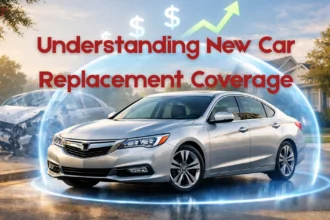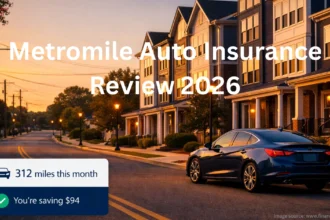
In the ever-evolving real estate landscape, mobile homes have emerged as a compelling investment opportunity, particularly in the United States. As housing affordability continues to be a pressing concern, the allure of mobile homes lies in their cost-effectiveness, making them an attractive option for both investors and those seeking affordable living solutions. This comprehensive article delves into the profitability of mobile home investments in the USA, examining the key factors, market trends, and strategies that can contribute to successful outcomes.
The Allure of Mobile Home Investments in the USA
Affordability and Lower Upfront Costs
One of the primary advantages of investing in mobile homes in the USA is the lower upfront costs compared to traditional site-built homes. According to data from the U.S. Census Bureau, the average sales price of a new mobile home in the US was $125,000 as of April 2023, a stark contrast to the average price of $513,100 for a site-built single-family home during the same period. This significant difference in initial investment opens the door for a broader range of investors to enter the market, making mobile homes an accessible option for those with limited capital.
High Rental Demand and Steady Income Streams
The demand for affordable housing in the US has been consistently high, and mobile homes cater to this growing need. Approximately 22 million Americans, or around 6.8% of the population, currently live in manufactured homes, according to the Manufactured Housing Institute. Moreover, 62% of mobile home residents anticipate staying in their current residence for more than 10 years, indicating a stable and reliable tenant base.
This robust demand translates into the potential for steady rental income streams for mobile home investors. By strategically positioning their properties in areas with high housing affordability needs, investors can capitalize on the consistent demand and maintain occupancy rates, generating reliable cash flow.
Economies of Scale in Mobile Home Parks
For investors with the resources to acquire entire mobile home parks, the potential for profitability increases even further. Owning a mobile home park allows investors to generate income from multiple rental units, benefiting from economies of scale in property management and maintenance. By renting out individual lots to mobile home owners, investors can create a diversified and stable revenue stream.
Furthermore, the land underlying a mobile home park can appreciate in value over time, potentially offering long-term capital gains in addition to the rental income. This dual-pronged approach to profitability makes mobile home parks an attractive investment option for those with the means to take on a larger-scale project.
Depreciation and Valuation Considerations
One of the key concerns associated with mobile home investments is the issue of depreciation. Unlike traditional site-built homes, which often appreciate in value over time, mobile homes tend to depreciate, similar to vehicles. This depreciation can pose a challenge for investors looking to maximize their returns through resale.
However, the rate and impact of depreciation can vary depending on several factors, including the mobile home’s age, condition, and location. Well-maintained and strategically located mobile homes may experience less pronounced depreciation, mitigating this challenge to some extent.
Additionally, some investors have found success in increasing the value of their mobile home investments by upgrading the units, enhancing curb appeal, and investing in the surrounding infrastructure of mobile home parks. By proactively addressing the depreciation factor, investors can potentially offset its impact and maintain the profitability of their mobile home investments.
READ ALSO: The Most Common Electrical Safety Issues in Old Homes
Navigating Financing and Insurance Challenges
One of the hurdles in mobile home investing is securing financing and appropriate insurance coverage. Traditional mortgage lenders often have stricter requirements for mobile homes, especially those not permanently affixed to a foundation. Investors may need to explore alternative financing options, such as personal loans, chattel loans, or specialized lenders catering to the mobile home market.
Similarly, finding suitable insurance policies for mobile homes can be more challenging compared to traditional real estate. Not all insurance providers offer coverage for these types of dwellings, and the available policies may come with higher premiums. Investors must diligently research and compare options to find the right insurance solution that adequately protects their mobile home investments.
Despite these financing and insurance challenges, innovative solutions are emerging in the market, making it increasingly feasible for investors to navigate the unique requirements of mobile home investments.
Strategies for Maximizing Profitability
Location, Location, Location
As with any real estate investment, the location of a mobile home plays a crucial role in its profitability. Investors should carefully research and identify areas with growing demand for affordable housing, strong job markets, and a stable economic outlook. By strategically positioning their mobile home investments in these desirable locations, investors can capitalize on higher rental rates and occupancy levels, ultimately enhancing their returns.
Moreover, mobile homes located in well-planned and maintained mobile home parks tend to hold their value better than those situated on individual plots of land. The amenities, infrastructure, and community atmosphere within a park can contribute to the overall appeal and desirability of the investment.
Operational Efficiency and Cost-Effective Management
Maximizing the profitability of mobile home investments requires a focus on operational efficiency and cost-effective management. Investors can leverage technology, streamline administrative processes, and implement proactive maintenance strategies to reduce expenses and optimize cash flow.
Adopting digital tools for tenant management, rent collection, and maintenance requests can improve responsiveness, reduce overhead, and enhance the overall tenant experience. Additionally, implementing preventive maintenance programs and staying on top of repairs can help minimize costly emergency fixes, further boosting the bottom line.
By emphasizing operational excellence, mobile home investors can ensure their investments remain profitable and competitive in the market.
Diversification and Risk Management
Incorporating mobile homes into a diversified real estate investment portfolio can provide valuable hedging against market volatility. The unique characteristics of mobile home investments, such as their affordability and different market dynamics, can offer a balance to traditional real estate holdings.
However, investors must also be mindful of the risks associated with mobile home investments, including the potential for natural disasters, regulatory changes, and tenant turnover. Developing comprehensive risk management strategies, such as securing appropriate insurance coverage, maintaining strong tenant relations, and staying abreast of local zoning laws, can help mitigate these challenges and safeguard the profitability of mobile home investments.
Community Engagement and Social Impact
Investing in mobile homes can also contribute to community development and have a positive social impact. By providing affordable housing options, mobile home investments can help address the pressing issue of housing affordability, particularly for underserved populations.
Investors can further enhance the social value of their investments by actively engaging with the local community, supporting infrastructure improvements, and fostering a sense of community within mobile home parks. This approach not only benefits the residents but can also increase the long-term appeal and profitability of the investment.
Emerging Trends and Future Outlook
Technological Advancements and Sustainability
The mobile home industry is continuously evolving, with manufacturers introducing innovative designs and incorporating sustainable features. Investing in modern, energy-efficient mobile homes can appeal to a broader demographic of environmentally conscious tenants and buyers, potentially commanding higher rental rates or resale values.
Additionally, the integration of smart home technologies, renewable energy sources, and water-saving systems can enhance the operational efficiency and long-term sustainability of mobile home investments. As the demand for eco-friendly living solutions grows, mobile homes that prioritize environmental stewardship may have a competitive edge in the market.
Demographic Shifts and Changing Perceptions
Historically, mobile homes have been associated with certain social stigmas, but this perception is gradually shifting. As the quality and design of manufactured homes continue to improve, they are becoming increasingly attractive to a wider range of prospective residents, including younger families and urban professionals seeking more affordable housing options.
Moreover, the COVID-19 pandemic has accelerated the demand for flexible, self-contained living spaces, which mobile homes can provide. This shift in consumer preferences may further drive the desirability and profitability of mobile home investments in the coming years.
Regulatory Changes and Advocacy
The regulatory environment surrounding mobile home investments is an important consideration for investors. Zoning laws, housing policies, and manufacturing standards can significantly impact the feasibility and profitability of mobile home investments.
Staying informed about current and upcoming regulations, as well as engaging in advocacy efforts to shape favorable policies, can give investors a competitive edge. By collaborating with local governments, industry associations, and community organizations, investors can help create a more supportive environment for mobile home developments, ultimately enhancing the long-term viability and profitability of their investments.
Conclusion
As the housing affordability crisis continues to challenge communities across the USA, mobile homes have emerged as a viable and potentially lucrative investment option. The combination of lower upfront costs, high rental demand, and opportunities for scale in mobile home parks make this niche an attractive proposition for real estate investors.
However, navigating the unique challenges associated with mobile home investments, such as financing, insurance, and depreciation, requires strategic planning and a thorough understanding of the market. By focusing on prime locations, operational efficiency, diversification, and community engagement, investors can position their mobile home investments for sustainable profitability.
The evolving landscape of mobile home technology, demographic shifts, and regulatory changes further suggest a promising future for this investment opportunity. As the demand for affordable housing solutions persists, mobile homes are poised to continue playing a crucial role in the US real estate market, providing investors with a pathway to generate consistent returns and contribute to the broader goal of improving housing accessibility.
FAQs
How do the average prices of mobile homes compare to traditional site-built homes in the USA?
According to the U.S. Census Bureau, the average sales price of a new mobile home in the US was $125,000 as of April 2023, compared to the average price of $513,100 for a site-built single-family home during the same period. This significant difference in upfront costs makes mobile homes a more affordable option for many investors and homebuyers.
What factors contribute to the high demand for mobile home rentals in the USA?
The consistent demand for affordable housing in the US has been a key driver of the high demand for mobile home rentals. Approximately 22 million Americans, or around 6.8% of the population, currently live in manufactured homes. Additionally, 62% of mobile home residents anticipate staying in their current residence for more than 10 years, indicating a stable tenant base.
What are the potential challenges associated with financing and insuring mobile home investments in the USA?
Securing financing for mobile home investments can be more challenging compared to traditional real estate, as many lenders have stricter requirements for these types of properties, especially those not permanently affixed to a foundation. Investors may need to explore alternative financing options, such as personal loans, chattel loans, or specialized lenders catering to the mobile home market.
Similarly, finding suitable insurance coverage for mobile homes can be more difficult, as not all insurance providers offer policies for these types of dwellings. The available policies may also come with higher premiums, adding to the overall costs of the investment.
How can mobile home investors in the USA maximize the profitability of their investments?
Key strategies for maximizing the profitability of mobile home investments in the USA include:
- Focusing on prime locations with growing demand for affordable housing and stable economic conditions
- Emphasizing operational efficiency through the use of technology, proactive maintenance, and cost-effective management
- Diversifying their investment portfolios to balance the unique risks and characteristics of mobile home investments
- Engaging with the local community and contributing to social impact initiatives to enhance the long-term appeal and value of their investments
What emerging trends and developments are shaping the future of mobile home investments in the USA?
Several key trends are influencing the future outlook of mobile home investments in the USA, including:
- Technological advancements in mobile home design and construction, incorporating sustainable features and smart home technologies
- Shifting demographic preferences and changing perceptions, with mobile homes becoming more attractive to a broader range of prospective residents
- Regulatory changes and the potential for investors to engage in advocacy efforts to shape a more favorable environment for mobile home developments
- Increasing focus on community engagement and social impact, as mobile home investments contribute to addressing housing affordability challenges
In another related article, Average Costs of California Homes – Top 5 Cities





